Division of Medical Ethics & Law
REDSSA
REDSSA Ethics Advisory Committee (EAC)
An alternate member is appointed for each category of person represented.
Purpose:
- To promote and uphold respect for the dignity and rights of research participants of the INFORM- Africa study.
- To act as a consultative and resource base on data science ethical issues for the research hub INFORM-Africa and various stakeholders.
- To help develop ELSI (ethical, legal and social implication) policies and guidelines with the relevant consultants as required.
First REDSSA EAC Meeting
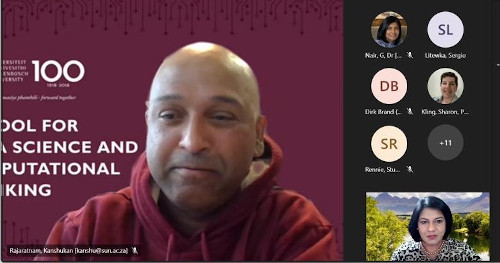

Chairs: Sharon Kling / Stuart Rennie
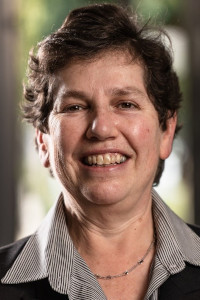 Sharon Kling
Sharon Kling
Sharon Kling is an emeritus associate professor in the Department of Paediatrics and Child Health, Faculty of Medicine and Health Sciences (FMHS), Stellenbosch University. She is a past president of the College of Paediatricians of South Africa and is currently a member of the Executive Committee of the Allergy Society of South Africa (ALLSA). She is a member of both the Clinical Ethics Committee at Tygerberg Hospital and the Undergraduate Research Ethics Committee of the FMHS. She holds an MPhil in Applied Ethics and is currently completing her doctorate, which critically examines the work of clinical ethics committees in South Africa. She serves as a co-investigator to the REDSSA project.
Stuart Rennie
Stuart Rennie is an Associate Professor in Social Medicine at the University of North Carolina (UNC) at Chapel Hill (USA), Core Faculty at the UNC Bioethics Center and Extraordinary Professor in Medicine at Stellenbosch University. He obtained his Masters in Anthropology and PhD in philosophy from Leuven University (Belgium). A member of the HIV Prevention Trials Network (HPTN) Ethics Working Group, he is currently an investigator in projects on the ethics of HIV research with pregnant adolescents, decision-making in HIV cure trials, and the use of HIV DNA for public health surveillance. Professor Rennie’s current teaching and research interests focus on research ethics, public health ethics and medical ethics in developing countries, primarily in sub-Saharan Africa. Professor Rennie serves as co-Principal Investigator for the REDSSA project.
Vice-Chair: Keymanthri Moodley
Keymanthri Moodley
Keymanthri Moodley is a Distinguished Professor in the Department of Medicine and Director of the Division of Medical Ethics and Law (CMEL), Faculty of Health Sciences, Stellenbosch University. Keymanthri is a specialist family physician, bioethicist and has served as a Principal Investigator on numerous clinical trials. In 2017, she was appointed as Adjunct Professor in the Department of Social Medicine, University of North Carolina-Chapel Hill (UNC), USA. Additionally, Professor Moodley is a member of the Academy of Science in South Africa (ASSAf) and completed an Executive MBA in 2015. She is an NRF rated researcher and has served on the SAMRC Board, the NHREC and in international organisations: WHO, International AIDS Society (IAS), NIH DSMBs and the WHO SAGE Ebola Working Group. The CMEL was re-designated as a Collaborating Centre in Bioethics in 2019 by the WHO. Professor Moodley serves as Principal Investigator for the REDSSA project.
Rsearchers: Nezerith Cengiz / George Rugare Chingarande
Nezerith Cengiz
Nezerith Cengiz is a bioethics graduate conducting empirical research on the REDSSA project at the Division of Medical Ethics and Law at Stellenbosch University. She completed her undergraduate studies in Public Health from Monash University; and an Honours degree and Master of Science in Bioethics and Health Law at the Steve Biko Centre for Bioethics at the University of Witwatersrand. Her Masters’ thesis focused on carebots and virtue ethics. Nezerith has a background working as a research assistant in vascular surgery research and ophthalmology. Nezerith’s current research focuses on the perspectives of REC members and researchers on data governance in sub-Saharan Africa. Since 2022 she is an ad hoc member of the Tygerberg Clinical Ethics Committee.
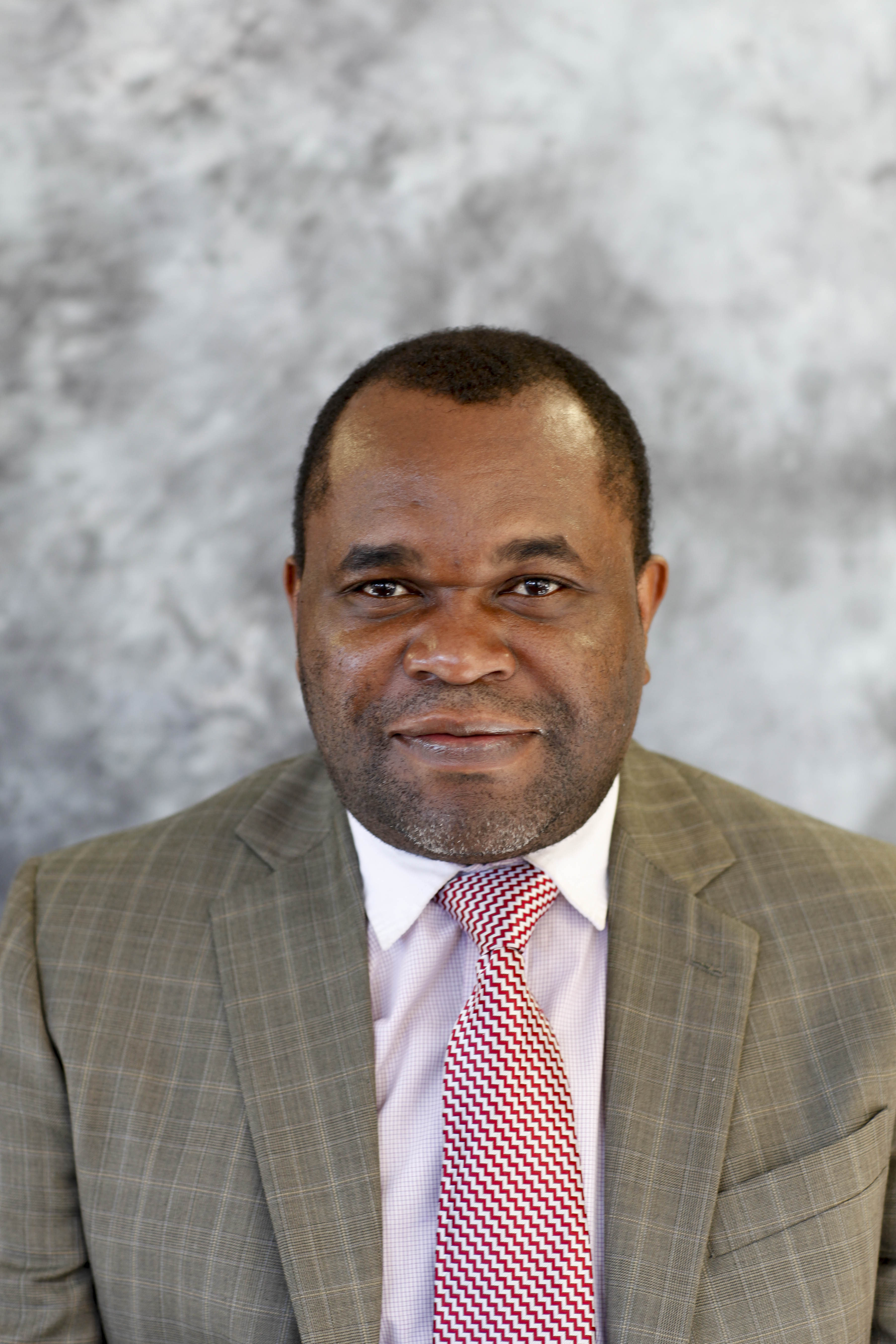 George Rugare Chingarande
George Rugare Chingarande
George Rugare Chingarande holds a PhD degree in Neuroscience with a graduate minor in Applied Statistics (2021) from the University of Missouri-Columbia (USA), MSc in Biological Engineering from the University of Missouri-Columbia (2021), MBA from DeMonfort University (UK) & a BTech in Nuclear Medicine Technology from the University of Johannesburg (South Africa). Additionally, he holds a PGDip in Health Research Ethics from Stellenbosch University (South Africa).
Data Scientist: Kanshukan Rajaratnam
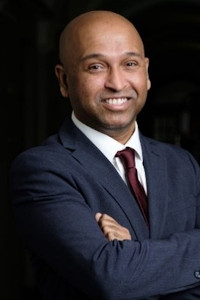 Kanshu Rajaratnam
Kanshu Rajaratnam
Professor Kanshukan Rajaratnam is the Director of the School for Data Science and Computational Thinking and an associate professor in the Department of Statistics and Actuarial Science at Stellenbosch University (SU). Prior to his joining SU, he was in the Department of Finance and Tax at University of Cape Town. There, he also held leadership positions such as strategic projects manager, Deputy Dean and Acting Dean of the Faculty.
Research Ethics Committee Members: Shenuka Singh / Theresa Burgess
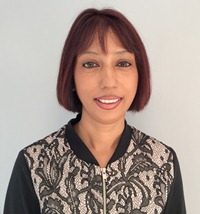
Shenuka Singh
Shenuka Singh is a Professor in the Discipline of Dentistry with a doctoral degree (PhD) in the field of Dental Public Health. She is an appointed member of the National Health Research Ethics Council (NHREC) in South Africa (2020-2022) and she chaired the Norms and Standards Committee within NHREC in 2019. Prof Singh is currently a Deputy Chair for the Biomedical Research Ethics Committee at UKZN (2020-2022) and a member of the Human Sciences Research Council’s Research Ethics Committee (2019-2021). She was the appointed Research Ethics Chair for the Council for Science and Industry Research in South Africa (CSIR REC R&D: 2015-2018) and the Humanities and Social Sciences Research Ethics Committee at UKZN (2014-2018). As part of her ongoing engagement with research ethics, she conducted a number of training workshops at various institutions in South Africa such as UKZN, DUT, MANCOSA, South African Medical Council and University of Zululand. She is actively involved in research and postgraduate supervision and has presented papers in local and international conferences (including invitations as keynote speaker). She was awarded an excellence award for her contribution to dental public health by the Venus International Association in Chennai in June 2019. Prof Singh was a recipient of the 2018 College of Health Sciences Teaching Excellence Award (in the category: Outstanding Contribution to Teaching) and was also awarded the UKZN Certificate of Excellence in Teaching (2018).
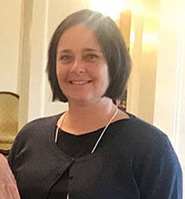 Theresa Burgess
Theresa Burgess
Theresa Burgess started her career with a BSc (Physiotherapy), followed by a BSc (Med)(Hons) and PhD in Exercise Science, all from the University of Cape Town. In 2011 she was awarded a NIH Fogarty Fellowship in Bioethics and with this support, successfully completed a MHSc (Bioethics) at the University of Toronto in 2012. She teaches musculoskeletal physiotherapy, exercise and sports physiotherapy, bioethics and research ethics to undergraduate and postgraduate students in the UCT Faculty of Health Sciences. She is also the programme convenor of the MSc in Exercise and Sports Physiotherapy. She serves as the Deputy Chair of the Faculty of Health Sciences Human Research Ethics Committee; has served as a member of the Department of Health’s National Health Research Ethics Council and serves on the Hospice Palliative Care Research Ethics Committee. She is part of the ARESA Bioethics Leadership Programme and is registered for a second PhD in Clinical and Research Ethics.
Lawyers: Dirk Brand / Jerome Singh
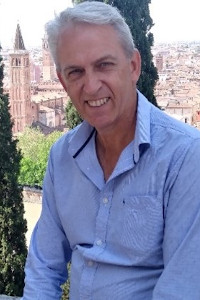
Dirk Brand
Dr Dirk Brand (BComm, LLB, LLM (EU Law) and LLD (Constitutional Law)) is an Extraordinary Senior Lecturer at the School of Public Leadership, Stellenbosch University and an independent legal consultant. He has published various articles and contributions to books on constitutional law, AI and the law, governance and international relations. He continues to consult on constitutional law, public governance, data protection and international relations.

Jerome Singh
Professor Jerome Amir Singh (BA, LLB, LLM, MHSc, PhD) is Adjunct Professor in the Dalla Lana School of Public Health at the University of Toronto, Toronto, Canada and Honorary Research Fellow at the Howard College School of Law, University of KwaZulu-Natal, Durban. He is the Director of the Ethical, Legal, and Social Issues (ELSI) Advisory Services on Global Health Research and Development. He serves as an ad hoc Consultant to several UN entities, including the WHO, UNAIDS, and UNICEF. He is the Co-Chairperson of the HIV Prevention Trial Network’s (HPTN) Ethics Working Group, and a member of the HIV Vaccine Trial Network’s (HVTN) Efficacy Trial Working Group. He is a member of the South African National AIDS Council (SANAC) Technical Task Team on Ensuring Protection of Human Rights and Improving Access to Justice. He currently serves on several oversight bodies, including the International Ethics Review Board of Médecins Sans Frontières (MSF) and the WHO Ethics Review Committee for COVID-19.
Bioethicists from Southern Africa: Lilian Omutoko / Walter Jaoko
Lillian Omutoko
Dr. Lillian Omutoko is an Educationist and Bioethicist. She holds a PhD in Education, a Master’s Degree in Global Bioethics, a Postgraduate Diploma in Health Research Ethics and a Certificate in Responsible Conduct in International Research. She is a Senior Lecturer at University of Nairobi, Department of Educational Management, Policy and Curriculum Studies. She received Fogarty Scholarship Awards from National Institutes of Health for a fellowship at University of Washington and Stellenbosch University. She is a Co-investigator in the project Strengthening Ethics Review and Oversight in Kenya sponsored by European and Developing Countries Clinical Trials Partnership (EDCTP) and a team member in the project ‘University of Nairobi –Ohio State University Project in One Health and Emergency Research Ethics (MOHERE)’ sponsored by National Institutes of Health. Lillian is part of the collaborative team involved in establishment of Hospital Ethics Committees in Kenya. She has presented papers and keynote addresses in several workshops and conferences in Bioethics nationally and internationally. She is a member of Kenyatta National Hospital- University of Nairobi Ethics Research Committee; Bioethics Society of Kenya; International Association of Ethics Education; Research Ethics Association of Southern Africa and also one of the founders of African Bioethics Network.

Walter Jaoko
Walter Jaoko is a Professor of Medical Microbiology and Tropical Medicine, the Director of KAVI-Institute of Clinical Research at University of Nairobi, and Fellow of the Africa Academy of Sciences. He has over 30 years’ experience in teaching, research and post-graduate student supervision in infectious diseases transmission, pathology, treatment, prevention and control, and has published over 200 articles in peer-reviewed scientific journals. He is also a bioethicist as an alumnus of the Fogarty funded ARESA training programme at Stellenbosch University where he obtained a Postgraduate Diploma in Health Research Ethics, and a holder of a Master of Global Bioethics degree from Anahuac University
External bioethicist: Sergio Litewka
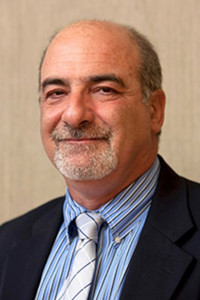 Sergio Litewka
Sergio Litewka
Dr. Litewka completed his medical degree at the University of Buenos Aires and his master’s in public health at the University of El Salvador, also in Buenos Aires, Argentina. He is a faculty member in the University of Miami (UM) Department of Surgery and the director of global bioethics at the UM Institute of Bioethics, a World Health Organization (WHO) collaborating centre in Ethics and Health Policies. Dr. Litewka’ s work at the UM Institute of Bioethics focuses on the development of research and education activities with governmental organizations, universities and the private sector on human subject protection and the responsible conduct of research. From 2005 to 2018 he was the International Director for the Collaborative Institutional Training Initiative (CITI Program), a web-based initiative for research ethics and responsible conduct of research education. During 2011 he served as a member of the International Research Panel at the U.S. Presidential Commission for the Study of Bioethics Issues.
Additional Bioethicists: Alwyn Mwinga / Esperança Sevene
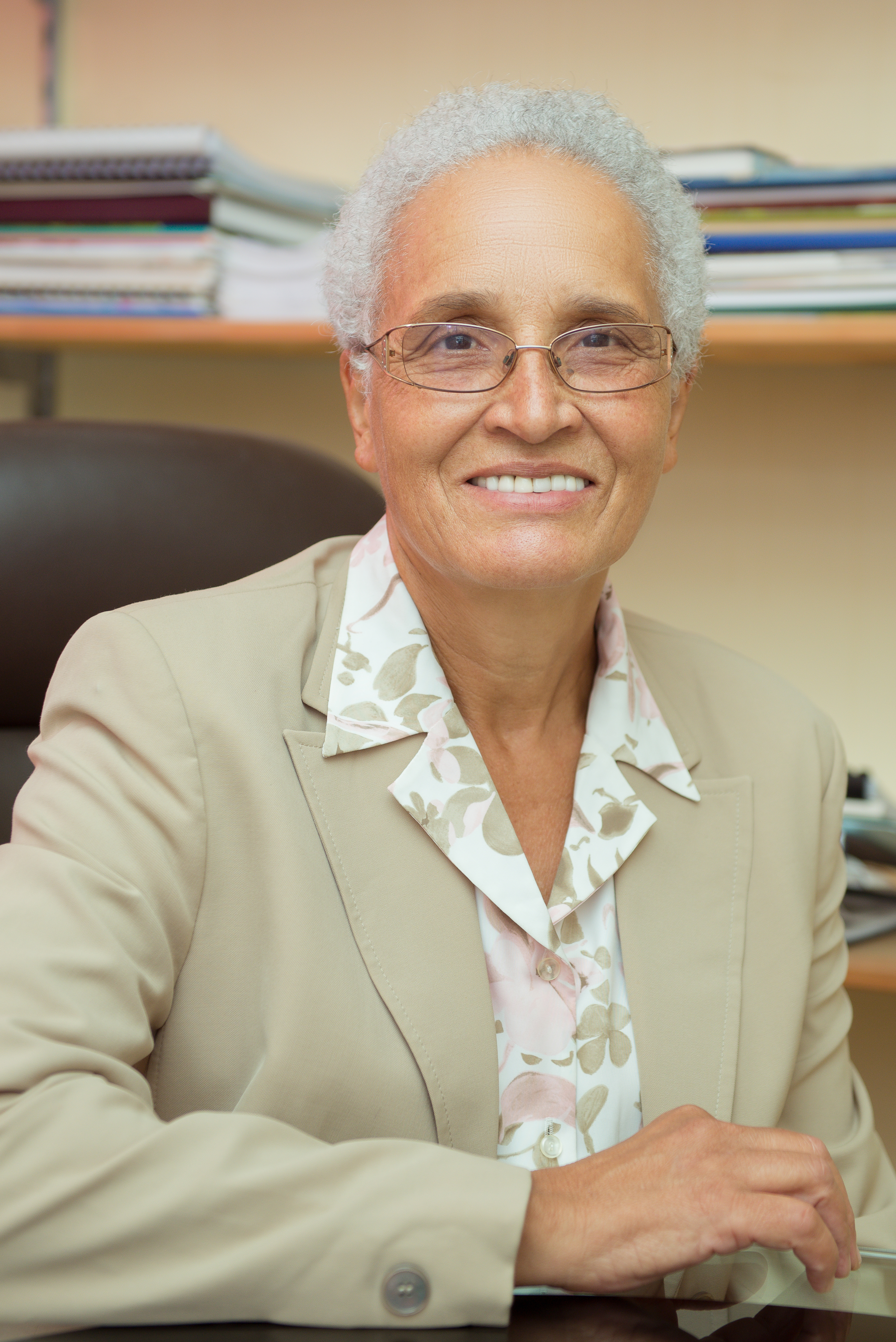 Alwyn Mwinga
Alwyn Mwinga
Dr Alwyn Mwinga is a Physician trained at the University of Zambia with a special interest in TB, HIV, and bioethics. Dr Mwinga served a member of the University of Zambia Ethics Committee for 10 years and is currently a member of Ethics Advisory Group for the Union. She is currently a member of the Board of the Drugs for Neglected Diseases Initiative (DNDi) as a patient representative. Dr Mwinga has post-graduate qualifications from the University of Zambia, the University of London, and Stellenbosch University. She served as Associate Editor for the International Journal of Tuberculosis and Lung Diseases for 10 years, as an Associate Editor for the Lancet Infectious Diseases as well as a member of the International Advisory Board of the Lancet. She has served as external reviewer for research proposals with various organizations including the MRC (UK), European Commission, the International Development Research Centre (Canada) and the Union (Fund for Innovative DOTS Expansion using Local Initiatives). She has served as a member of the Data Safety Monitoring Committee and Trial Steering Committees for several clinical trials and was a member of TDR Scientific Working Group for Research Capacity Strengthening and Knowledge Management. She is the Chairperson for the Zambian Ministry of Health's Tuberculosis Technical Working Group. She is the Chief Executive Officer for Zambart, an independent research organization based in Zambia that is renowned for conducting high quality community randomised trials in Zambia.

Esperança Sevene
Esperança Sevene graduated in Medicine and Surgery at the Eduardo Mondlane University (UEM), did a master's in Pharmacoepidemiology at the Autonomous University of Barcelona and a PhD in Medicine at the University of Barcelona. She worked on the safe use of medicines and vaccines and was involved in implementing pharmacovigilance in several countries with the World Health Organization. She was involved in creating the National Bioethics Committee for Health in 2002. She is an Associate Professor of Clinical Pharmacology, serving as the Director of the Doctoral Program in Biosciences and Public Health at UEM, Senior Researcher at the Manhiça Health Research Center and Vice-President of the National Bioethics Committee for Health.
INFORM-Africa Community Advisory Board Members: Mzamowenkosi Zondi / Henrietta Agboje
Mzamowenkosi Zondi
My Name is Mzamowenkosi Zondi. I am a human rights and anti-corruption activist. I was employed by Human Sciences Research Council (HSRC) in a community relations and communications component. I am employed by Treatment Action Campaign as KwaZulu Natal Provincial Manager. I am also a Community Scholar at University of KwaZulu Natal Centre for Civil Society at Howard College.
Henrietta Agboje
A coach and an advocate for Education for all at the grassroot. Henrietta is the team lead at Brainy Age Initiative, an NGO that reaches out to children from different parts of Nigeria with a focus on educating them on issues like drug abuse and other social vices with relationship to Gender Based Violence (GBV). The initiative caters both children and women and assisting children that are out of school due to financial constraints. As an educator who has been in the teaching profession for years. She is a certified librarian/educator with certification in etiquette and diplomas in child protection, psychology, and leadership. She is also a director with Hive Africa, a global leadership program.
Independent Committee Member: Effy Vayena

Effy Vayena
Dr. Effy Vayena is a Professor of Bioethics at the Swiss Federal Institute of Technology Zürich (ETH Zürich). In her work, she investigates how advances in science and technology can be ethically applied for best outcomes in public and personal health. Vayena completed her education as a social historian with a PhD in Medical History from the University of Minnesota and a habilitation on Bioethics and Health Policy at the University of Zurich. A keen interest in health policy led her to work for the World Health Organization where she served as a technical officer for several years. Upon her return to academia, Vayena was awarded a Swiss National Science Foundation professorship and founded the Health Ethics and Policy Lab. The lab's purpose is to tackle ethical questions that arise at the cutting edge of biotech research, in areas such as genomic technologies and big data analytics for healthcare. Vayena has been appointed Faculty Associate at the Berkman Klein Center for Internet & Society at Harvard University, where she was previously a Fellow. She has published over a hundred peer-reviewed articles and book chapters and co-edited several books. Vayena is also an elected member of the Swiss Academy of Medical Sciences and chairs the Ethical, Legal and Societal Implications advisory group for the Swiss Personalized Health Network. She is a member of the World Economic Forum's advisory board for the Global Risks Report. She co-chaired the WHO's expert advisory group on Artificial Intelligence health ethics and governance. In 2021 she was named chair of the Greek National Bioethics and Technoethics Commission.

